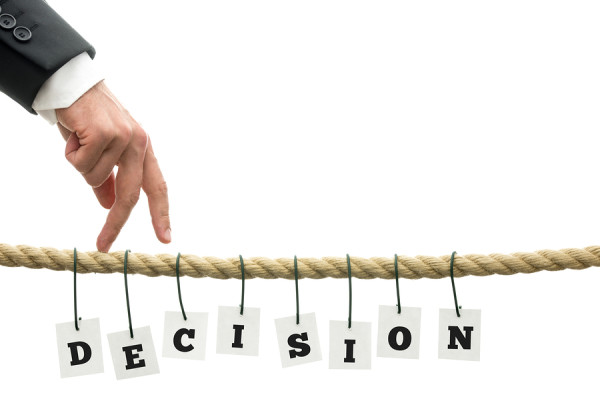Do we have a need for better decision-making?
You certainly don’t have to look far to see the pressures and expectations that face leaders today prompting skewed, rushed and even compromised decision processes. But an organization’s health is only as sound as its leader’s decisions. Some companies prosper from wise leadership directions, while others struggle after flawed choices—the kind that receive extra publicity because of the adverse impact on their organizations, people and communities.
Consider this: Two fundamental forces determine our prosperity: decision quality and luck, according to Annie Duke in Thinking in Bets: Making Smarter Decisions When You Don’t Have All the Facts (Penguin, 2018). Leaders instinctively (and rightly) dislike depending on luck and want their decisions to shape the future.
In our fast-paced world, important issues never become simpler, only more complex. You have less time to take each course of action and make each choice, with an ever-increasing impact on outcomes. Decisions that don’t go well are critiqued and analyzed. The need to make good decisions has never been more paramount—not just for leaders’ well-being, but for everyone under their authority.
People have two different modes of thought when a decision is required, and each has its place:
- The automatic, or “flash,” mode is more reactive than responsive. It’s based on instinct and feelings when emergency situations can’t wait for much analysis. Leaders must react immediately or fail.
- The analytical mode calls for deliberation and analysis. This is, of course, a slower and more methodical decision process, where time allows for (and requires) thorough evaluation of all options and outcomes. Long-term planning calls for the analytical decision mode, where a leader must respond wisely or fail.
A leader’s decision-making success hinges on resolving the balance between these two modes, Duke maintains. React when necessary, but learn to shape your reactive thinking with as much analysis as possible. Great leaders also learn to prioritize choices that benefit everyone over those that advance their personal agendas.
What do you think? Do you see a need for better decision-making? I’d love to hear from you. You can call me at 561-582-6060, or, I can be reached here or on LinkedIn.

Did You Enjoy This Article?
Join thousands of other smart business owners like yourself & get our Proffittable Times newsletter.
It's filled with actionable content you can apply immediately.
Sign up now to get started!
– Coach Nancy










